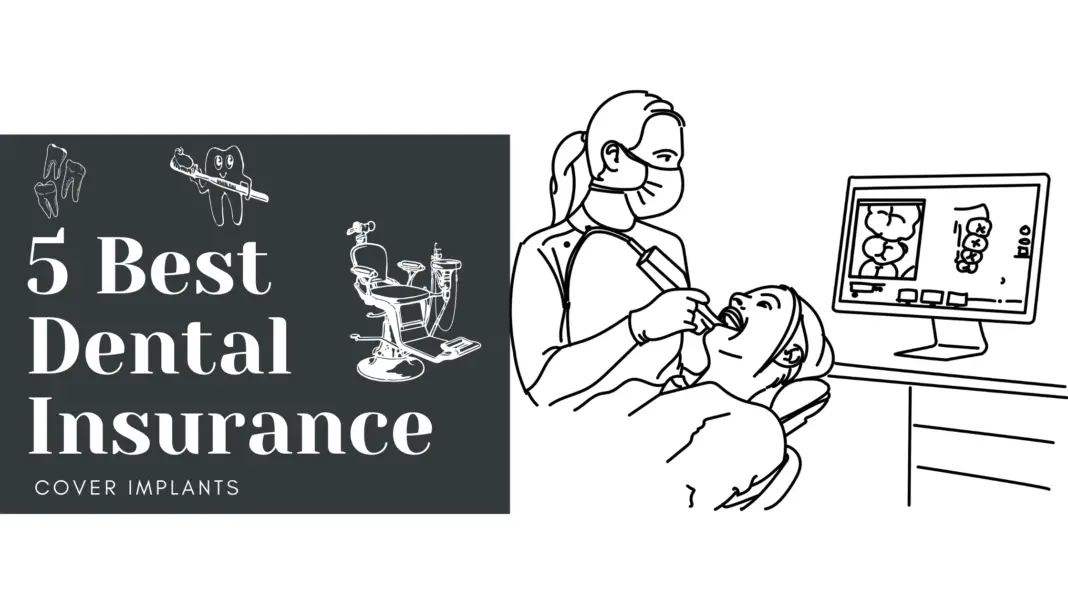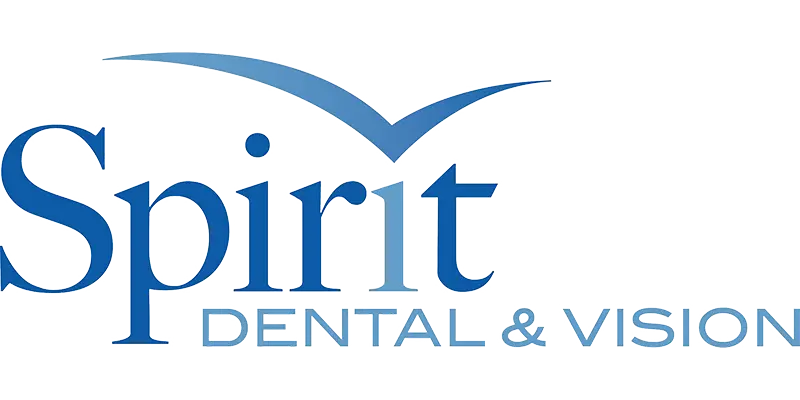“This post may contain affiliate links, if you click a link we may earn a commission if you purchase from that merchant.”
While dentures and bridgework make it possible to replace damaged or missing teeth, consumers who can afford it often splurge for dental implants instead. Dental implants are screw-like posts that replace the root of your tooth with artificial teeth that can look perfectly like natural teeth. Dental implants look, feel, and work just like natural teeth, and they’re built to last a lifetime.
The cost of dental implants varies based on where you live, how much work you need, and other considerations including which dentist you see. For a single dental implant, you have to pay nearly $3,5000 to $55,000.
As a result, many people want to make sure they have dental insurance that covers implants. Many basic dental insurance policies do not cover implants and those that do have limitations and exclusions that substantially restrict the amount of financial support you receive.
We examined more than 20 dental insurance policies to identify coverage alternatives that include implants to guide you in your quest.
The 5 Best Dental Insurance for Implants
- Delta Dental Insurance
- Denali Dental
- Spirit Dental & Vision
- Ameritas
- Cigna Dental
Table of Contents
Delta Dental Insurence
Delta Dental, which was started in 1954, has evolved to be a well-known dental insurance provider with more than 80 million customers. Individuals, families, retirees, and small companies can all benefit from these plans. To meet your needs, you can choose from PPO, HMO, and Direct Dental Plans with varied coverage options and deductibles. The cost and coverage of Delta Dental plans vary depending on where you reside, but you can get a free quote by going to the Delta Dental website and entering your zip code. Individuals can choose from four different types of implant coverage plans:
- Preventative care and discounts on dental services are included in PPO plans.
- Preventative dentistry is the goal of Dental Health Maintenance Organization (DHMO) plans, therefore there are few or no copayments for preventative services.
- Patient Direct plans offer discounts for a panel of dentists in your area.
- Dental Premier plans have a per-service price, which means you won’t have to pay more than your copay and deductible for approved services in any given year.
Delta Dental covers all routine and preventative diagnostic procedures, as well as 80% of basic operations such as fillings, root canals, and extractions, and 50% of complex treatments such as dental bridges and implants. Waiting periods, annual maximums, and deductibles all apply, and these can significantly restrict the amount of coverage available for implants. Delta Dental also notes that “some policies don’t cover certain pre-existing conditions such as missing teeth,” so you can’t purchase insurance for dental implants if your teeth are already missing.
The cost of Delta Dental dental insurance is determined by where you reside, your age, the number of individuals you need to cover, and the plan you choose. Basic PPO plans, on the other hand, can cost as little as $20 per month, while premium PPO policies can cost as much as $65 per month for a 40-year-old.
Why We Selected Delta Dental: Delta Dental is one of the leading providers of dental policies, and their top PPO plan offers the maximum coverage for implants (50 percent) for a low monthly price.
Pros:-
- You may get a free insurance quote by filling out an online form.
- Dental implants are covered in many plans.
- You can get coverage that is specific to your need.
Cons:-
- Many plans do not cover pre-existing conditions, including missing teeth.
- There are annual maximums and deductibles to consider.
- In most cases, major procedures such as dental implants are only covered to 50%.
See also:
Is Your Dental Covered by Your Personal Medical Insurance Plan?
Which Dental Insurance Covers Implants
Denali Dental
Denali Dental has been providing dental insurance to consumers for over 60 years. This coverage is underwritten by Renaissance Life & Health Insurance Company of America, which boasts an “A” rating for financial strength from AM Best.
This company provides dental implant coverage in three different ways, depending on where you live.
- In the first year, the Denali Summit Plan covers 100 percent of preventative services, 50 percent of diagnostic services, and 30 percent of basic and major treatment. Coverage amounts grow through the fourth year when you get 60% coverage for basic and major procedures.
- In the first year, the Denali Peak Plan covers 80% of preventative care, 50% of diagnostics, and 30% of basic and significant services like implants. Coverage improves to 80% for diagnostic services and 60% for basic and major treatments in the fourth year.
- In the first year, the Denali Ridge Plan covers 100 percent of preventative care, 50 percent of diagnostic services, and 10% of basic and major treatment. By the fourth year, coverage for diagnostic services has increased to 80 percent, while coverage for basic and major treatments has increased to 50 percent.
Implants are included in the major procedures category, which means you’ll only have limited coverage for this area of your dental health each year. Also, keep in mind that both individual and family plans have an annual cap, as well as a $100 to $200 deductible (depending on the plan you have).
The cost of a plan varies significantly depending on who you’re insuring, the plan you choose, and where you reside. For an individual seeking coverage, a Denali Peak plan with a maximum payout of $6,000 starts at roughly $70 a month.
Denali Dental, though not being as large as Delta Dental, provides comprehensive coverage with low deductibles ($100 or $200) for major procedures including dental restoration services.
Pros:-
- The amount of coverage for major services like dental implants increases every year, so the longer you wait, the more coverage you’ll get.
- Many plans cover major services including implants, veneers, and bridges.
- Customize your dental insurance coverage to meet your specific requirements.
Cons:-
$6,000 maximum applies to individual and family plans.
Because prices differ across the country, you must apply for a policy to receive a free quote.
Spirit Dental & Vision
Spirit Dental & Vision is an online storefront operated by Direct Benefits Inc., a major insurance provider. This coverage is underwritten by Ameritas Life Insurance Corp, which boasts an A rating from AM Best and an A+ rating from Standard & Poor’s for financial strength.
Dental implants, as well as other important services, are covered by Spirit Dental & Vision. A dental insurance plan for an individual with $1,200 in coverage the first year, $2,500 in coverage the second year, and $5,000 in coverage the third year and beyond can start at $50 per month. The annual deductible for all plans is $100.
Although coverage for implants does not apply to teeth that are already missing, Spirit is known for offering coverage that does not require a waiting period. The cost of your plan varies depending on how many people are on it and where you reside.
Why We Picked Spirit Dental & Vision: Spirit Dental & Vision is the only business we looked at that has no waiting periods for coverage to begin on any of its plans.
Pros:-
There are no waiting periods for plans; coverage begins right away.
Get a free quote online.
Major dental procedures, such as dental implants, are covered.
Cons:-
Pre-existing conditions, such as missing teeth, will be excluded from coverage.
There are certain plans with low yearly coverage limits ($1,200).
See also: How Does Dental Insurance Work?
Ameritas
Ameritas is a direct-to-consumer dental insurance provider with an A rating from AM Best and an A+ from Standard & Poor’s for financial strength. Ameritas is a direct-to-consumer dental insurance provider with an A rating from AM Best and an A+ from Standard & Poor’s for financial strength. This company was created in 1887 and provides dental and vision insurance, however dental insurance was only introduced in 1959.
With many of their insurance plans, benefits begin on the first day, and preventative checkups are fully covered when you visit an in-network provider. Ameritas, like other providers, offers plans with varying levels of coverage and cost according to your age, where you reside, and other considerations.
Annual maximums apply to the company dental insurance plans, which may be as low as $1,000 or $2,000, based on the quotes we received. In addition, their dental insurance only covers up to 20% of significant operations like dental implants for the first year, then covers up to 50% after that.
A dental plan for one person with a maximum benefit of $2,000 per year, including dental implants, can cost roughly $50 a month, depending on a variety of circumstances.
Why We Selected Ameritas: Ameritas is the best value because it covers implants for a low price and gives yearly caps that increase by up to 50% the longer you have your insurance.
Pros:-
- For many plans, there is no waiting period.
- Major dental procedures, such as dental implants, are covered up to the limits of coverage.
- You can apply for a free quote online by entering your zip code.
Cons:-
There are annual limits that might be as low as $1,000.
Cigna Dental
Cigna Dental is hard to beat when it comes to group dental insurance coverage. Dental implant coverage is available for businesses to purchase for their employees, and it comes in 2 forms:
- Dental implants, crowns, and even teeth whitening are all covered under Cigna Dental Care DHMO plans, and you may save money with copayments, coinsurance, and savings.
- Cigna Plus Savings is a dental discount program that allows members to save money on any dental procedures performed by participating providers.
The exact benefits are difficult to obtain since these are group plans implemented by employers and quotes are not available. Employers must connect with an insurance agent to determine how much it will cost for each employee. Implants have some limits, such as the ability to replace a crown, inlay, or prosthesis over an implant only once every five years. The surgical placement of an implant is also limited to one per year, with current dental implants being replaced every ten years.
Why We Selected Cigna: Cigna is a leading group benefits plan that has made dental care more accessible.
Pros:-
Strong financial and credit ratings, including an A rating from AM Best.
Cons:-
Implants have limitations, such as the fact that you can only have one new surgical implant every calendar year.







































